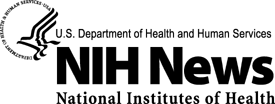21 Dec 1998: Final Comments Sought on Listing Alcoholic Drinks, Second-Hand Smoke in Federal List of Causes of Cancer
The National Toxicology Program (http://ntp.niehs.nih.gov/) today solicited final, written public comments over the next 60 days on the proposed listing of alcoholic beverage consumption and environmental tobacco smoke as "known" causes of human cancer in the federal government's Ninth Report on Carcinogens to be published next year.
The Federal Register notice seeking comment said both exposure circumstances have had three scientific reviews - one by scientists of the National Institute of Environmental Health Sciences (http://www.niehs.nih.gov), the next by an interagency group* of federal scientists and the third by a board largely made up of non-government scientists. All overwhelmingly agreed the exposure circumstances should be listed as "known human carcinogens."
However, participants in the reviews emphasized that the evidence that alcoholic beverages cause cancer is most clearly established in heavy users and alcoholics, more so than in moderate or occasional users. Studies show the risk of mouth, larynx, pharynx and esophagus cancers is greatest among people who both drink and smoke.
Some scientists in the final board review also said they viewed the risk from environmental or second-hand smoke as slight, except perhaps in occupations or exposure circumstances where exposure to cigar, cigarette and/or pipe smoking is great.
- Comment was also requested in the Federal Register notice (pages 68783 - 68785 vol. 63, Number 239) on diesel exhaust particulates, which is proposed to be listed as "reasonably anticipated" to be a human carcinogen. This designation was chosen because of weaknesses in the human epidemiology studies in clearly linking increased lung tumor risk with increasing diesel exhaust particulate exposure.
- On methyl-t-butyl ether, or MTBE (http://www.atsdr.cdc.gov/tfacts91.html)
 , which is added to unleaded gasoline in amounts up to 11 percent in some states. MTBE is proposed for listing as "reasonably anticipated" but only one of the three scientific review panels recommended that MTBE be listed in the report.
, which is added to unleaded gasoline in amounts up to 11 percent in some states. MTBE is proposed for listing as "reasonably anticipated" but only one of the three scientific review panels recommended that MTBE be listed in the report.
- And on dioxin (TCDD) - which is a ubiquitous contaminant. The NTP-NIEHS panel and the interagency scientific panel were unanimous that it should be upgraded to "known human carcinogen" but the board opposed an upgrading, with 5 voting for it but 7 against, with one abstention.
Also these substances found mostly in manufacturing:
- Nickel compounds, proposed as "known human carcinogens" and approved as such by all three review groups; nickel compounds had previously been listed as "reasonably anticipated;"
- Respirable crystalline silica - the sand formed in mining, polishing and grinding operations - which all three review groups recommended be upgraded from "anticipated" to "known."
- Ethylene oxide, used in making other chemicals such as ethylene glycol and widely used in the health care industry as a sterilant, to be upgraded to "known," as recommended by all three reviews.
- Isoprene, which is used in making synthetic rubber, which all three scientific review groups said unanimously should be listed as "reasonably anticipated,"
The public can also comment on:
- A recommendation on: whether exposures encountered in the manufacture and repair of boots and shoes be listed as carcinogenic. Two panels said it should be listed as "reviewed but not formally listed, due to inadequate data." The NTP board made a unanimous recommendation that any listing be deferred because of difficulties in assessing exposures that might create a cancer risk.
- The delisting, or removal, of ethyl acrylate from the carcinogen list. All three panels agreed that new data produced by the NTP showed this substance used to make latex paints and textiles should not be considered as reasonably anticipated to cause cancer in humans.
NTP is headquartered at the National Institute of Environmental Health Sciences, a part of the National Institutes of Health. (http://www.nih.gov)  Both are in Research Triangle Park (http://www.rtp.org/)
Both are in Research Triangle Park (http://www.rtp.org/)  , N.C. Kenneth Olden, Ph.D. (http://www.niehs.nih.gov/about/od/pastdirectors/kennetholden.cfm), directs both NTP and NIEHS.
, N.C. Kenneth Olden, Ph.D. (http://www.niehs.nih.gov/about/od/pastdirectors/kennetholden.cfm), directs both NTP and NIEHS.
Comments should be addressed to Dr. C.W. Jameson, NTP Report on Carcinogens, 79 Alexander Drive, Room 3217, PO Box 12233, Research Triangle Park, N.C. 27709.
Congress (http://www.house.gov/)  mandates the preparations of the reports, the first of which was published in 1980, to inform the public and as a check on whether legislative or regulatory action is needed to protect the public.
mandates the preparations of the reports, the first of which was published in 1980, to inform the public and as a check on whether legislative or regulatory action is needed to protect the public.
Following the comment period, a final draft will be prepared for review by NIEHS/NTP Director Kenneth Olden and, finally, by Health and Human Services (http://www.hhs.gov/)  Secretary Donna Shalala. The publication is sent as a report to Congress and is available to the public.
Secretary Donna Shalala. The publication is sent as a report to Congress and is available to the public.



